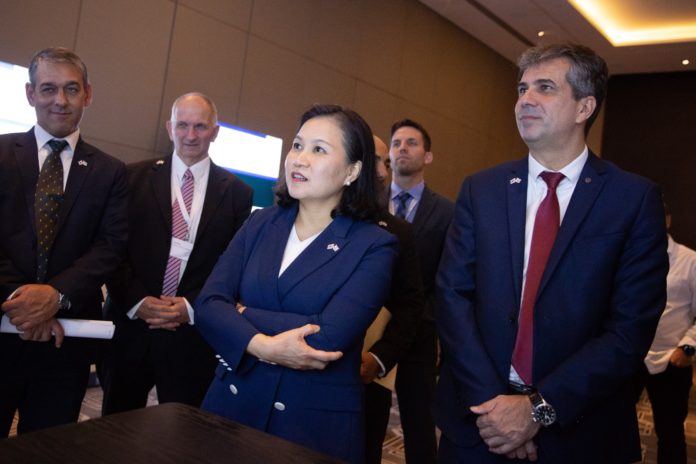By Arye Green/TPS • 21 August, 2019
Israel and the Republic of South Korea Wednesday declared the conclusion of their negotiations on a free trade agreement. The joint declaration was given by South Korean Trade Minister Yoo Myung-hee and Economy and Industry Minister Eli Cohen.
The three-year-long negotiations culminated in a free trade agreement that will advance bilateral relations as well as encourage trade in new areas.
It is anticipated that the agreement will provide a competitive advantage to Israeli exporters in the South Korean market, thus increasing Israeli economic growth. The deal will hopefully facilitate a better starting point for Israeli exports, which will contribute substantial growth to the Israeli economy.
In 2018, trade between Israel and South Korea amounted to approximately $2.5 billion, an annual increase of almost 15%. It is anticipated that the free trade agreement will further increase bilateral trade in the coming years.
The agreement will exempt many Israeli exports from Korean tariffs, including machinery and electrical equipment, mechanical devices, fertilizer, medical equipment, cosmetics, plastics, metals, fruit juices and wine. Similarly, tariffs will be lowered on South Korean goods imported into Israel, including cars, car parts, refrigerators, medical equipment, electronic components, toys, plastics and chemicals.
Cohen praised agreement and calling it historic and emphasizing its importance for the economy. “The free trade agreement with South Korea is a historic agreement, the first to be signed with an East Asian country, which is one of the leading economies in the world. It reflects – inter alia – the policy of the ministry to assist in diversifying exports and opening new markets for Israeli industry,” he said.
The agreement does not, however, include all goods produced across Israel. One of the topics negotiated in the lengthy discussions was whether or not to include products produced in Judea and Samaria in the agreement. Israel eventually accepted the Korean’s demand to reserve the rights to exclude products of Judea and Samaria in the agreement.
The decision has caused backlash from Israelis, who have called the concession a farce. Shlomo Ne’eman, head of the Gush Etzion regional council, which is in Judea in Samaria, commented on the agreement that doesn’t include his constituents. “It is unthinkable that a free trade agreement will include the discrimination of Judea and Samaria’s residents. No agreement that leaves out Jedua and Samaria should be signed,” he said.
Cohen responded to an inquiry on the matter subjected by the Yesha Council, which represents the residents of Judea and Samaria. He wrote that the agreement doesn’t explicitly exclude Judea and Samaria’s products, but the Koreans may not deduct the tariffs from such products. Cohen said this agreement is similar to previous trade deals negotiated with the EU, and promised the Economy and Industry Ministry would reimburse any producer who is discriminated against.






